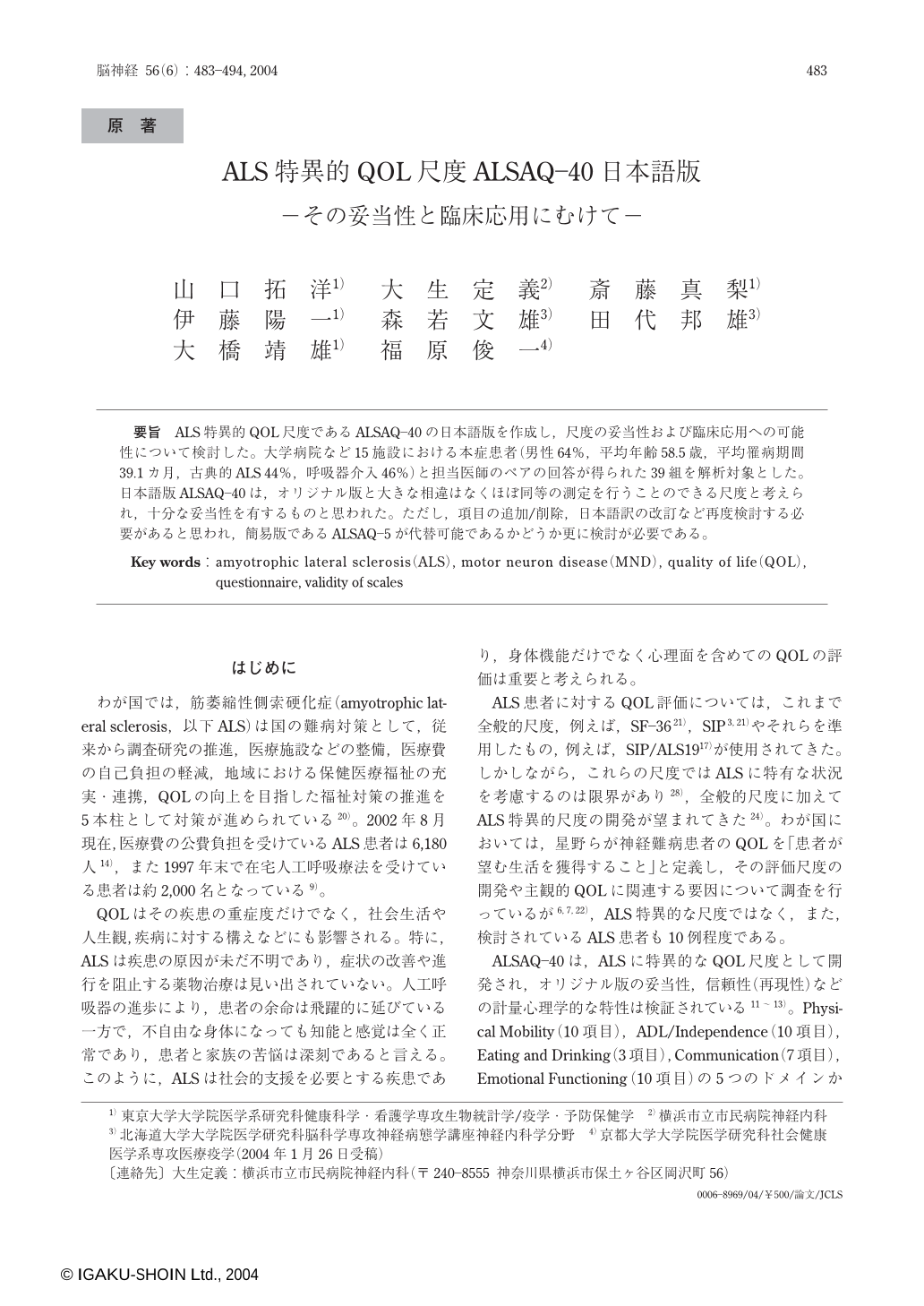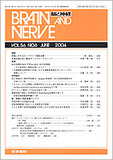Japanese
English
- 有料閲覧
- Abstract 文献概要
- 1ページ目 Look Inside
要旨 ALS特異的QOL尺度であるALSAQ-40の日本語版を作成し,尺度の妥当性および臨床応用への可能性について検討した。大学病院など15施設における本症患者(男性64%,平均年齢58.5歳,平均罹病期間39.1カ月,古典的ALS 44%,呼吸器介入46%)と担当医師のペアの回答が得られた39組を解析対象とした。日本語版ALSAQ-40は,オリジナル版と大きな相違はなくほぼ同等の測定を行うことのできる尺度と考えられ,十分な妥当性を有するものと思われた。ただし,項目の追加/削除,日本語訳の改訂など再度検討する必要があると思われ,簡易版であるALSAQ-5が代替可能であるかどうか更に検討が必要である。
We studied validity and clinical applicability of the Japanese version of amyotrophic lateral sclerosis(ALS)assessment questionnaire 40(ALSAQ-40). The original version contains forty questions measuring five areas(domains)of health status : Physical Mobility, ADL/Independence, Eating and Drinking, Communication and Emotional Functioning. Data were obtained from 39 ALS patients and from their physicians at 15 centers in Japan. Patients completed the ALSAQ-40 and the SF-36, and provided information on their age and their status of ventilator use. Their physicians provided information on the date of diagnosis, type of disease and clinical characteristics, and ALSFRS-R. The patients' average age was 58.5 years, and 64% were men. The mean duration since diagnosis was 39.1 months. Forty four percent were classical ALS patients and 46% were receiving a respiratory intervention. Although there was much heterogeneity, the scores for Physical Mobility and ADL/Independence were higher(indicating worse health status)than the scores for the other domains. Item-scale correlations were strong, except for the item “felt embarrassed in social situations” in the Emotional Functioning domain. All the domains had very high internal consistency : Cronbach's alphas ranged 0.95 to 0.97. With regard to the cluster structure of the forty items, the Eating and Drinking domain and the Communication clustered together. The reason might be that the former consisted of only three items and both domains measure bulbar symptoms. Domain scores correlated significantly with scores of related dimensions in the SF-36 and ALSFRS-R, and did not correlate strongly with unrelated domains. The five items of the ALSAQ-5 correlated with all five domain scores on the ALSAQ-40. These results should be interpreted with caution because we analyzed together data from ALS patients with various characteristics. In conclusion, although we may need to add and remove some items and modify the wording of others, the Japanese version of the ALSAQ-40 had high validity and is likely to be useful in evaluating of QOL in ALS patients. Whether the ALSAQ-5 can be used in place of the ALSAQ-40 is a matter for further study.
(Received : January 26, 2004)

Copyright © 2004, Igaku-Shoin Ltd. All rights reserved.


